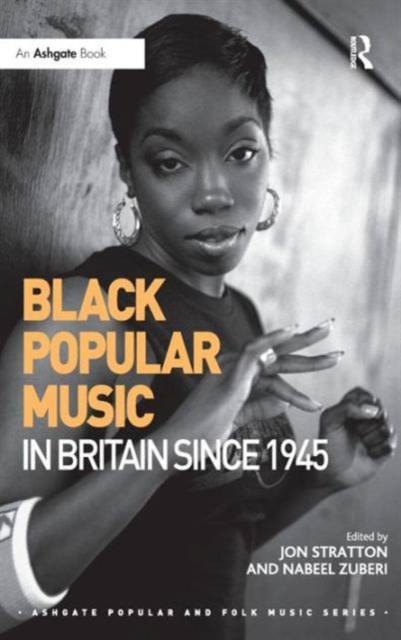
- Afhalen na 1 uur in een winkel met voorraad
- Gratis thuislevering in België vanaf € 30
- Ruim aanbod met 7 miljoen producten
- Afhalen na 1 uur in een winkel met voorraad
- Gratis thuislevering in België vanaf € 30
- Ruim aanbod met 7 miljoen producten
Zoeken
€ 182,45
+ 364 punten
Uitvoering
Omschrijving
Black Popular Music in Britain Since 1945 provides the first broad scholarly discussion of this music since 1990. The book critically examines key moments in the history of black British popular music from 1940s jazz to 1970s soul and reggae, 1990s Jungle and the sounds of Dubstep and Grime that have echoed through the 2000s. While the book offers a history it also discusses the ways black musics in Britain have intersected with the politics of race and class, multiculturalism, gender and sexuality, and debates about media and technology. Contributors examine the impact of the local, the ways that black music in Birmingham, Bristol, Liverpool, Manchester and London evolved differently and how black popular music in Britain has always developed in complex interaction with the dominant British popular music tradition. This tradition has its own histories located in folk music, music hall and a constant engagement, since the nineteenth century, with American popular music, itself a dynamic mixing of African-American, Latin American and other musics. The ideas that run through various chapters form connecting narratives that challenge dominant understandings of black popular music in Britain and will be essential reading for those interested in Popular Music Studies, Black British Studies and Cultural Studies.
Specificaties
Betrokkenen
- Auteur(s):
- Uitgeverij:
Inhoud
- Aantal bladzijden:
- 256
- Taal:
- Engels
- Reeks:
Eigenschappen
- Productcode (EAN):
- 9781409469131
- Verschijningsdatum:
- 5/12/2014
- Uitvoering:
- Hardcover
- Formaat:
- Genaaid
- Afmetingen:
- 156 mm x 234 mm
- Gewicht:
- 539 g

Alleen bij Standaard Boekhandel
+ 364 punten op je klantenkaart van Standaard Boekhandel
Beoordelingen
We publiceren alleen reviews die voldoen aan de voorwaarden voor reviews. Bekijk onze voorwaarden voor reviews.











